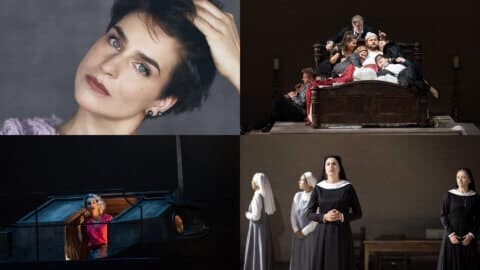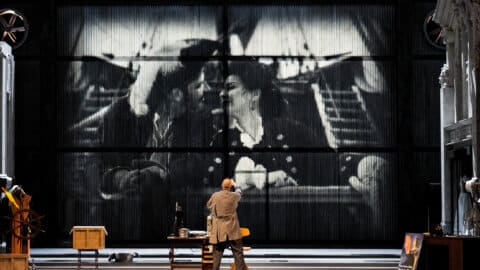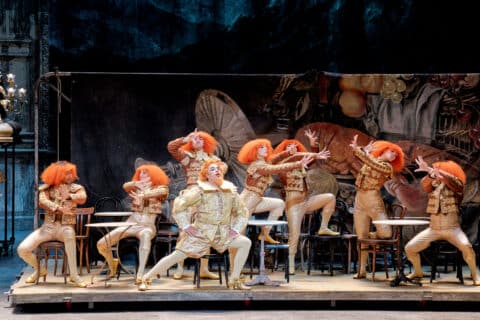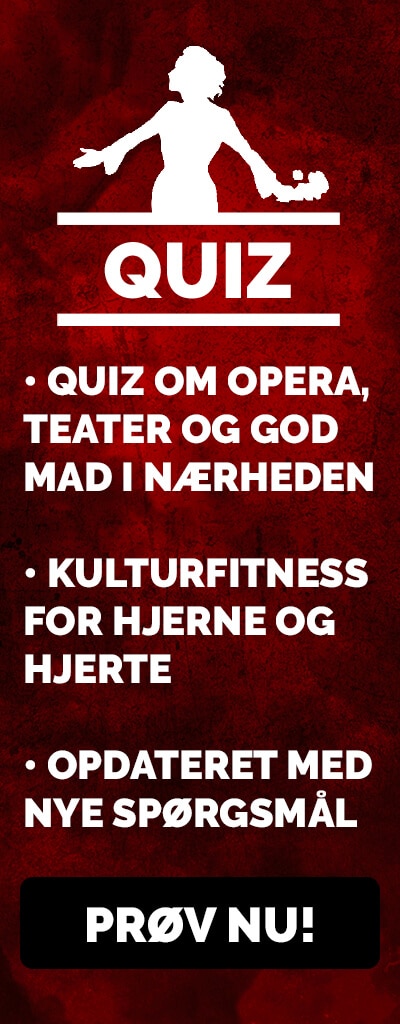FAUST • OPERA BASTILLE PARIS
★★★★☆☆
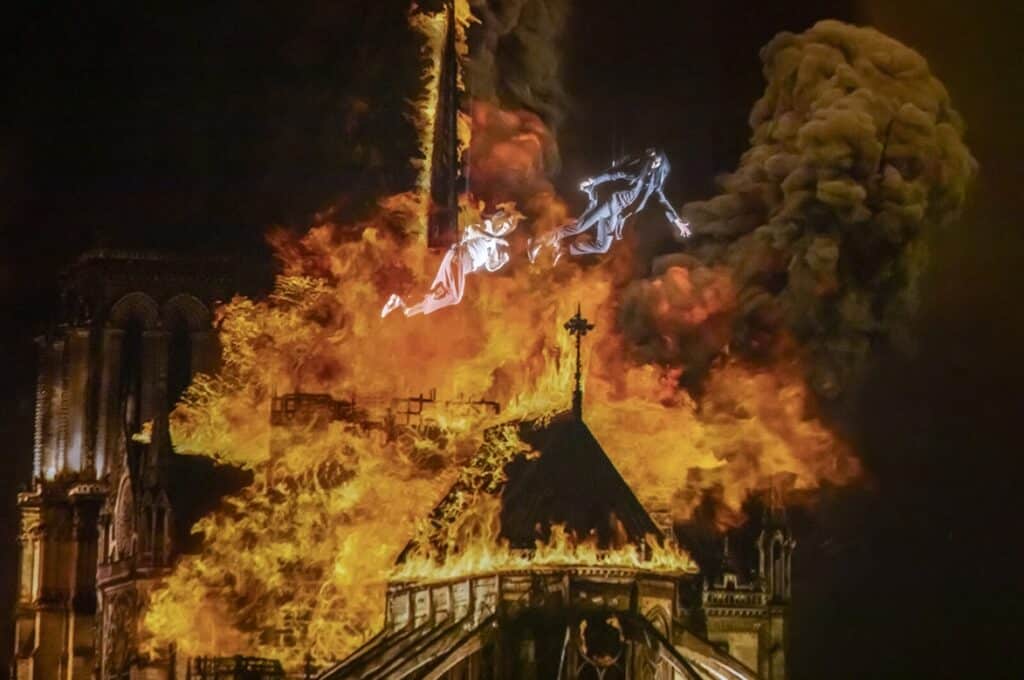
Photo: Franck Ferville
REVIEW FAUST: DEVILISHLY INNOVATIVE IN PARIS
Faust, by the great French opera composer Gounod, offers a beautiful experience of melodic, dramatic orchestration, but has a serious problem with its dramaturgy, which is ineffective to say the least throughout most of its final acts, where it seems difficult to unravel the diabolical plot.
The problem has enticed German director Tobias Kratzer to embark on some wild, extemporized modernizations most of which are spectacularly entertaining – and in other places somewhat out of place in Goethe’s 1808 tragedy.
We meet Dr Faust in his enviably tasteful apartment, where he has just had sex with a beautiful high-class prostitute who emerges naked from a gorgeous designer sofa and slowly gets dressed.
She happily accepts his money, but not his kiss, and frustrated by his dwindling attractiveness, he summons the devil/Mefisto, who turns up with his suit-clad service team.
Before long, Faust has made a deal to sell his soul for eternal youth. The hunt for the young, beautiful Marguerite can begin.
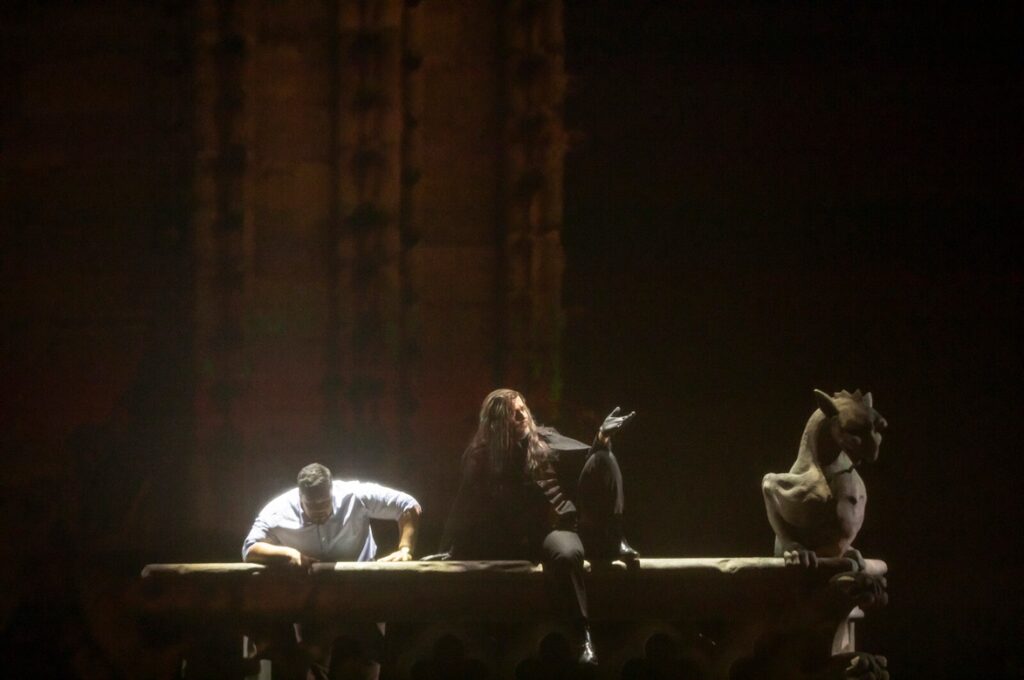
Photo: Franck Ferville
I was particularly interested in Kratzer’s take on Faust because of his fabulous, innovative Tannhäuser in Bayreuth, which was also supported by numerous video sequences that really gave the production a lift, not least the marvelous drone shots from the German Alps, and a clever, technical mix of live footage from the stage and prefabricated footage.
Here at the Bastille Opera, we get some amazing drone footage of Paris by Night, shot down through a blood-red, scattered cloud cover, blown up on the entire back wall of the opera with Faust and the devil flying ahead, across the unusually high-ceilinged stage space at a height of 20 meters as they deliver their arias live, hanging quite effortlessly from almost invisible string suspensions.
It’s a sight you don’t see every day, and here you just have to surrender.
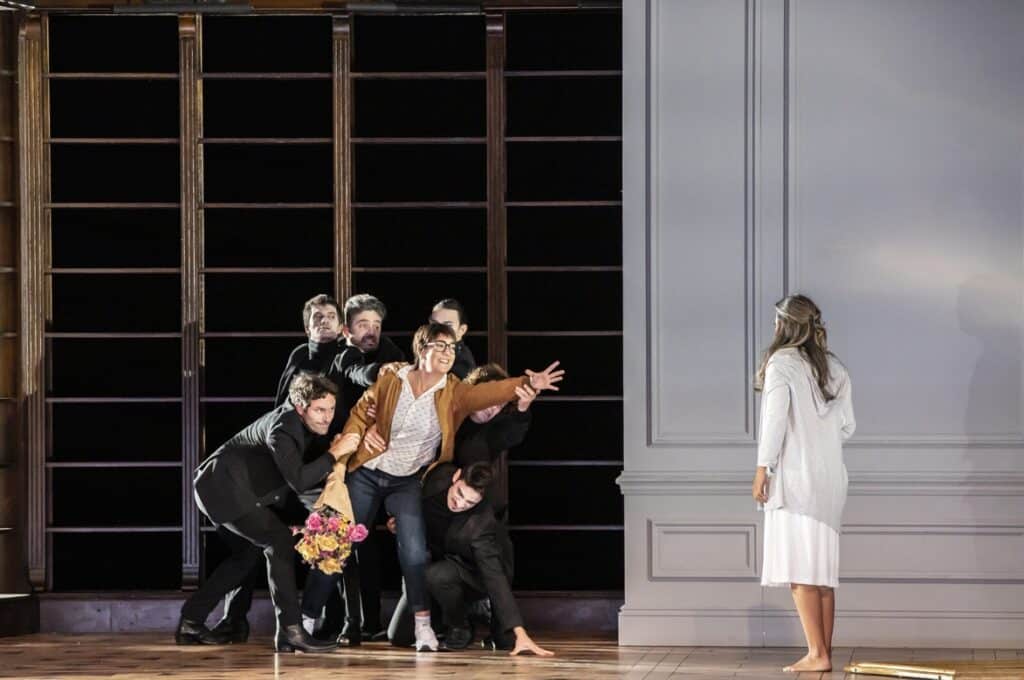
Photo: Franck Ferville
The same goes for a technically refined sequence towards the end, a mix of live video and prefab background footage travelling through the tunnels, where the hapless Marguerite is trapped in the Parisian Metro with only herself and Mefisto in the carriage.
Creepy as hell, bordering on trauma-inducing. (At least I took a taxi back to the hotel)
On the other hand, several riding scenes seem Lucky Look-stupid in context.
(Faust and Mephisto overpower a platoon of mounted gendarmes, steal the horses and gallop through the boulevards of Paris at midnight. Cut to live footage at the scene, where they sit and jump on a pair of gymnasium horses and crack the whip. Come on.) At the same time, they fly past Notre Dame, which they set on fire in a visual highlight reel.
Kratzer’s grip invites a friendly chat about how much you should dismantle the originals to force through an ‘exciting’ conceptual idea. Kratzer goes all the way.
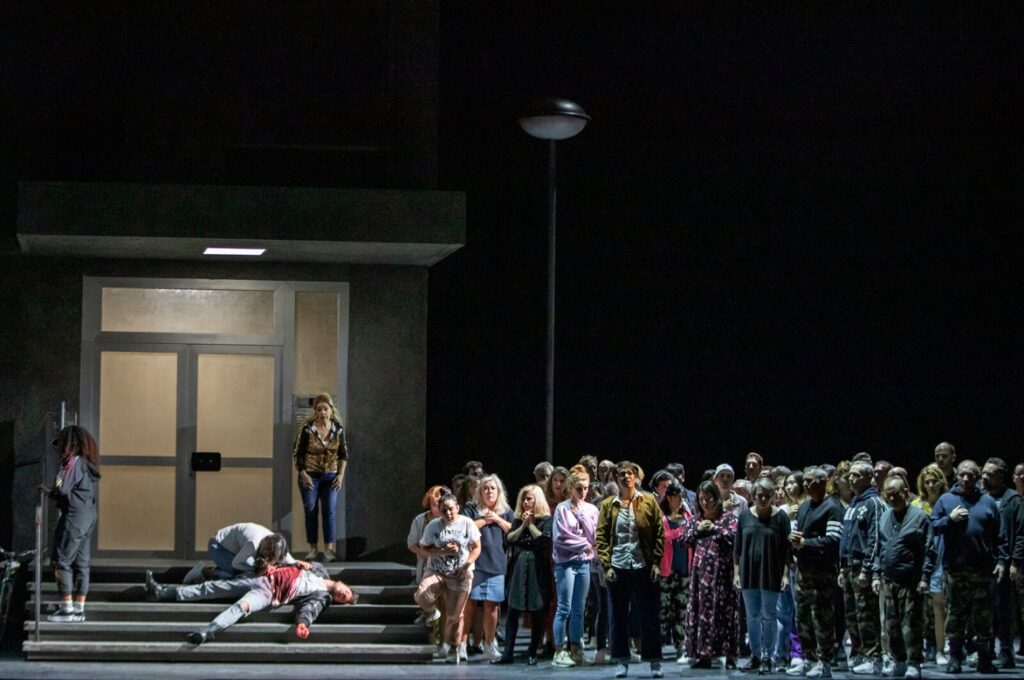
Photo: Franck Ferville
After the performance, I struck up a conversation with a group of mature, cultured Frenchmen and retired American operatic tourists. I was quite sure they had found the production appalling, but I was sorely mistaken. They loved every second of it and praised Kratzer’s innovative ideas.
The staging is debatable, but the soloists are not. They were top class and received enthusiastic cheers from the Parisian audience, who did not hold back at all.
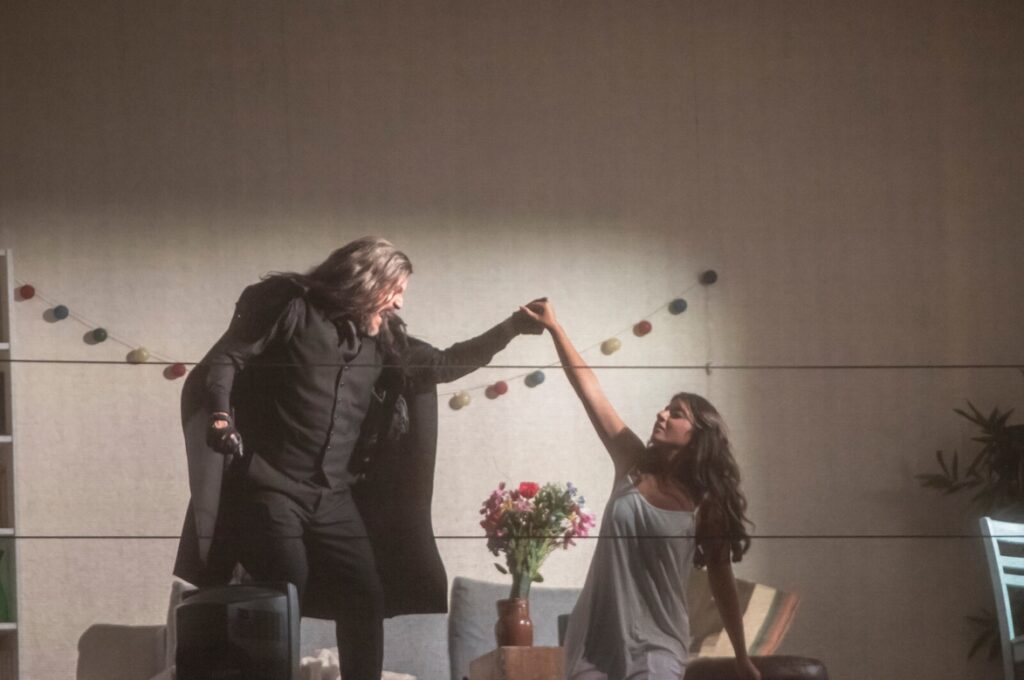
Photo: Franck Ferville
Mephisto was superbly portrayed by Bergamo Italian bass-baritone Alex Esposito – a character who, with his dark voice and seductive personality, is central to the opera.
Doctor Faust, who is at times watched/doubled by his own silent alter ego, is convincingly sung by tenor Pene Pati from Samoa. As Marguerite, Egyptian-born soprano Amina Edris is a good experience in Gounod’s melodic arias in an orchestration that alternates between the romantic, the tragic and the supernatural.
The remarkably organic acoustics of the Bastille Opera sound a bit like Puccini.
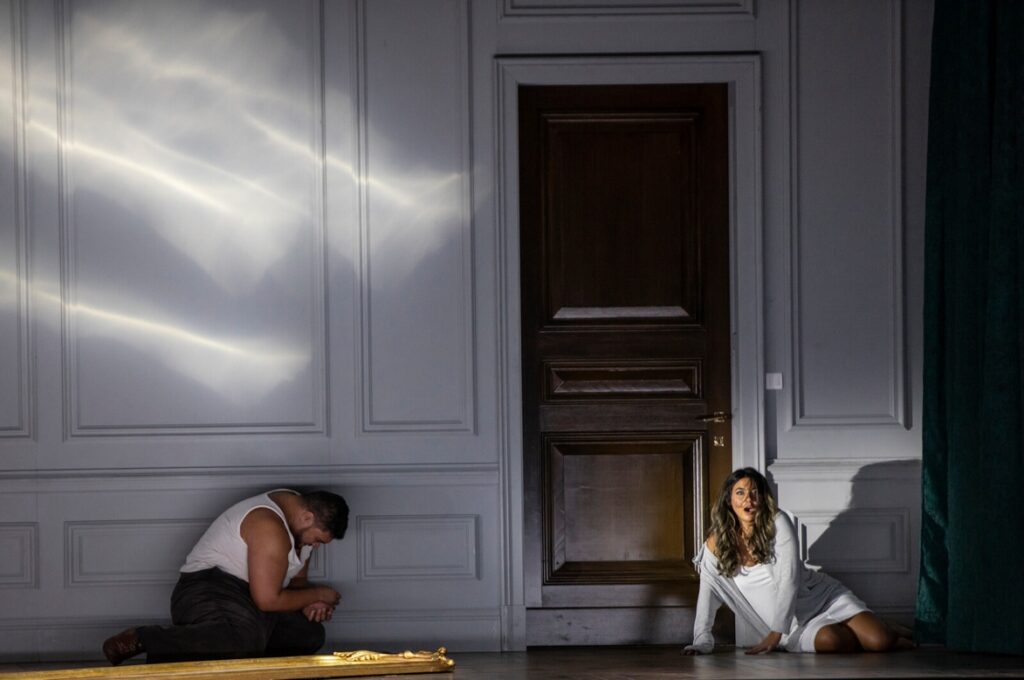
Photo: Franck Ferville
At several points, I note the discrepancy between the staging’s action and dialogue/libretto. I realize that you have to overlook such things when bringing classic stories forward in time.
But will it all come together on this night in Paris? Judging by several international reviews, I am alone in my doubts.
Four stars from GOT TO SEE THIS.

